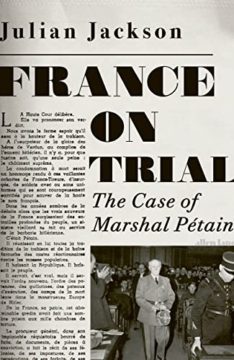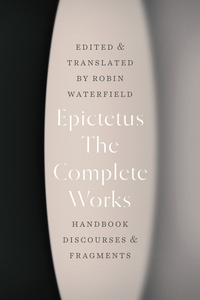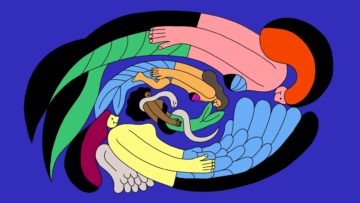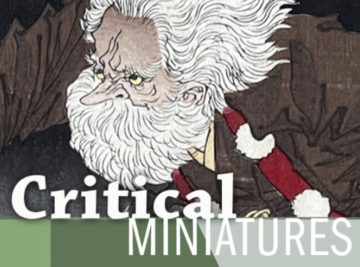Munro Price at Literary Review:
 On 23 July 1945 the 89-year-old Marshal Philippe Pétain, until recently head of the French state, went on trial for his life before a specially convened High Court in Paris, accused of attacking national security and collusion with Nazi Germany amounting to treason. For four years, from the fall of France to the liberation, he had steered the Vichy regime created from the wreckage of defeat into collaboration with the new continental hegemon, Adolf Hitler. Now, after eight months of wandering to escape the advancing Allies through eastern France to the castle of Sigmaringen in Germany and finally to Switzerland, he was in the custody of General de Gaulle’s provisional government.
On 23 July 1945 the 89-year-old Marshal Philippe Pétain, until recently head of the French state, went on trial for his life before a specially convened High Court in Paris, accused of attacking national security and collusion with Nazi Germany amounting to treason. For four years, from the fall of France to the liberation, he had steered the Vichy regime created from the wreckage of defeat into collaboration with the new continental hegemon, Adolf Hitler. Now, after eight months of wandering to escape the advancing Allies through eastern France to the castle of Sigmaringen in Germany and finally to Switzerland, he was in the custody of General de Gaulle’s provisional government.
Pétain’s trial was about much more than the fate of one extremely elderly man. It was newly liberated France’s first opportunity to confront the traumas it had endured from May 1940 to August 1944: the catastrophic military defeat by Germany, the signing of the armistice, the dissolution of the Third Republic and its replacement by the authoritarian Vichy state, the deportations of Jews and the increasingly bloody civil war between the collaborationist regime and the Resistance.
more here.

 The
The For at least the last 400 million years, insects have ruled the world. The first insect fossils are nearly twice as old as the oldest dinosaur. They were the first animals to fly, and that adaptation helped them to spread to every corner of the planet. They survived four of the five mass extinctions in Earth’s history. Then, a mere 200,000 years ago, a new species appeared in East Africa and started to spread over the surface of their planet. In a geologic blink, modern humans were everywhere, hunting and farming and changing the world to fit our needs and desires. It was inevitable that these two dominant animals would come to affect each other in profound ways, both positive and negative.
For at least the last 400 million years, insects have ruled the world. The first insect fossils are nearly twice as old as the oldest dinosaur. They were the first animals to fly, and that adaptation helped them to spread to every corner of the planet. They survived four of the five mass extinctions in Earth’s history. Then, a mere 200,000 years ago, a new species appeared in East Africa and started to spread over the surface of their planet. In a geologic blink, modern humans were everywhere, hunting and farming and changing the world to fit our needs and desires. It was inevitable that these two dominant animals would come to affect each other in profound ways, both positive and negative. The inner workings of the large language models at the heart of a chatbot are a black box; the
The inner workings of the large language models at the heart of a chatbot are a black box; the  I briefly moved back to Rhode Island following the collapse of my first marriage. It was the summer before I turned twenty-seven, and I spent three months hiding away in my childhood bedroom, grief-damaged and humiliated by the task of trying to figure out who and how I was supposed to be. My husband and I had managed to stay married for only four years, the last of which I spent watching from the sidelines as he enjoyed an unexpectedly rapid and very public rise as an artist. His newly minted success introduced a host of newly minted problems, and I drifted through most of that winter and spring weeping in the utility closet at the boutique where I worked and asking him where I fit into his life so many times that I eventually didn’t fit into it at all.
I briefly moved back to Rhode Island following the collapse of my first marriage. It was the summer before I turned twenty-seven, and I spent three months hiding away in my childhood bedroom, grief-damaged and humiliated by the task of trying to figure out who and how I was supposed to be. My husband and I had managed to stay married for only four years, the last of which I spent watching from the sidelines as he enjoyed an unexpectedly rapid and very public rise as an artist. His newly minted success introduced a host of newly minted problems, and I drifted through most of that winter and spring weeping in the utility closet at the boutique where I worked and asking him where I fit into his life so many times that I eventually didn’t fit into it at all. Plastic recycling doesn’t work, no matter how diligently you wash out your peanut butter container. Only about
Plastic recycling doesn’t work, no matter how diligently you wash out your peanut butter container. Only about  In conversation with the novelist
In conversation with the novelist  The people of Rwanda have been tested by tragedy. Nearly thirty years ago, when ethnic Hutu extremists sought to exterminate the country’s Tutsi minority,
The people of Rwanda have been tested by tragedy. Nearly thirty years ago, when ethnic Hutu extremists sought to exterminate the country’s Tutsi minority,  In 1989, a redheaded mermaid made her big-screen debut. She wanted to be part of the above-surface world, where people walk around on (what do you call ‘em?) feet, to wander free on the sand in the sunshine. She fell in love with a handsome, kind prince. After some terrifying obstacles and a near-miss, they married. Ariel got her feet. For Disney, The Little Mermaid was a big hit, the start of a new era for the studio’s animated entertainment. She launched a hot streak that would continue through the 1990s: Beauty and the Beast (1991), Aladdin (1992), The Lion King (1994), Pocahontas (1995), The Hunchback of Notre Dame (1996), Hercules (1997), Mulan (1998), and Tarzan (1999). They were hits then, the early films in particular, and form a foundational plank in billions of lives. A tremendous percentage of people walking around on the planet can sing snatches of “Part of Your World” or “A Whole New World” or “Circle of Life” at the drop of a hat.
In 1989, a redheaded mermaid made her big-screen debut. She wanted to be part of the above-surface world, where people walk around on (what do you call ‘em?) feet, to wander free on the sand in the sunshine. She fell in love with a handsome, kind prince. After some terrifying obstacles and a near-miss, they married. Ariel got her feet. For Disney, The Little Mermaid was a big hit, the start of a new era for the studio’s animated entertainment. She launched a hot streak that would continue through the 1990s: Beauty and the Beast (1991), Aladdin (1992), The Lion King (1994), Pocahontas (1995), The Hunchback of Notre Dame (1996), Hercules (1997), Mulan (1998), and Tarzan (1999). They were hits then, the early films in particular, and form a foundational plank in billions of lives. A tremendous percentage of people walking around on the planet can sing snatches of “Part of Your World” or “A Whole New World” or “Circle of Life” at the drop of a hat. Scientists might be able to keep tabs on the world’s flora and fauna by analysing DNA floating through the air. That’s the conclusion of a study published on 5 June in Current Biology
Scientists might be able to keep tabs on the world’s flora and fauna by analysing DNA floating through the air. That’s the conclusion of a study published on 5 June in Current Biology What exactly separates the short story from the novel? As the contemporary Scottish writer William Boyd has observed, the issue is more complicated than it might at first appear. Novelists and short story writers, Boyd points out, rely on the same “literary tools,” including character, plot, setting, title, and dialogue, and their outputs—sentences and paragraphs—look the same on the page. The tempting answer is to fall back on the obvious difference: short stories are just shorter than novels.
What exactly separates the short story from the novel? As the contemporary Scottish writer William Boyd has observed, the issue is more complicated than it might at first appear. Novelists and short story writers, Boyd points out, rely on the same “literary tools,” including character, plot, setting, title, and dialogue, and their outputs—sentences and paragraphs—look the same on the page. The tempting answer is to fall back on the obvious difference: short stories are just shorter than novels. In the 1870s, German physician Robert Koch was trying to curtail an epidemic of anthrax that was sweeping local farm animals. Other scientists had seen a bacterium, Bacillus anthracis, in the victims’ tissues. Koch injected this microbe into a mouse – which died. He recovered it from the dead rodent and injected it into another one – which also died. Doggedly, he repeated this grim process for over 20 generations and the same thing happened every time. Koch had unequivocally shown that Bacillus anthracis caused anthrax.
In the 1870s, German physician Robert Koch was trying to curtail an epidemic of anthrax that was sweeping local farm animals. Other scientists had seen a bacterium, Bacillus anthracis, in the victims’ tissues. Koch injected this microbe into a mouse – which died. He recovered it from the dead rodent and injected it into another one – which also died. Doggedly, he repeated this grim process for over 20 generations and the same thing happened every time. Koch had unequivocally shown that Bacillus anthracis caused anthrax. It is strange to think of Guinness World Records – a business named after a beer company, which catalogues humanity’s most batshit endeavours – as the kind of entity that could sell out. At first glance, it seems like accusing Alton Towers or Pizza Express of selling out. But the deeper I delved into the world of record breaking, the more sense it made. In spite of its absurdity, or maybe because of it, record breaking is a reflection of our deepest interests and desires. Look deeply enough at a man attempting to break the record for most spoons on a human body, or the woman seeking to become the oldest salsa dancer in the world, and you can find yourself starting to believe that you’re peering into humanity’s soul.
It is strange to think of Guinness World Records – a business named after a beer company, which catalogues humanity’s most batshit endeavours – as the kind of entity that could sell out. At first glance, it seems like accusing Alton Towers or Pizza Express of selling out. But the deeper I delved into the world of record breaking, the more sense it made. In spite of its absurdity, or maybe because of it, record breaking is a reflection of our deepest interests and desires. Look deeply enough at a man attempting to break the record for most spoons on a human body, or the woman seeking to become the oldest salsa dancer in the world, and you can find yourself starting to believe that you’re peering into humanity’s soul. Ellsberg, snowy-haired but energetic despite the cancer — renowned for his eloquence, he still speaks in perfect paragraphs — was calm, even jovial, during what his son, Robert Ellsberg, said would be his last interview. Based on his experience in the covert world, Ellsberg sees a direct line between the deceptions and lies that led to the Vietnam War — and 58,000 American deaths — and the deceptions and lies that justified the Iraq war. This high-level deceit, Ellsberg says, extends to America’s current drone war policy around the world, in which the government has
Ellsberg, snowy-haired but energetic despite the cancer — renowned for his eloquence, he still speaks in perfect paragraphs — was calm, even jovial, during what his son, Robert Ellsberg, said would be his last interview. Based on his experience in the covert world, Ellsberg sees a direct line between the deceptions and lies that led to the Vietnam War — and 58,000 American deaths — and the deceptions and lies that justified the Iraq war. This high-level deceit, Ellsberg says, extends to America’s current drone war policy around the world, in which the government has